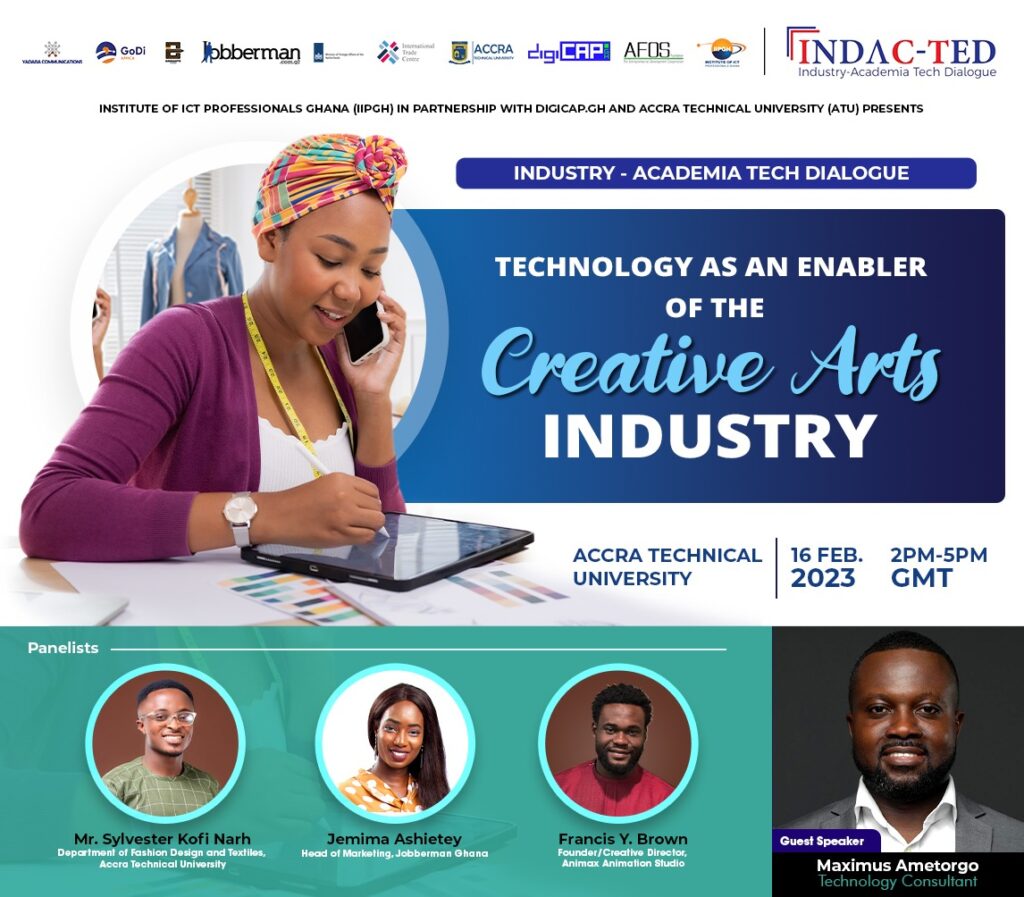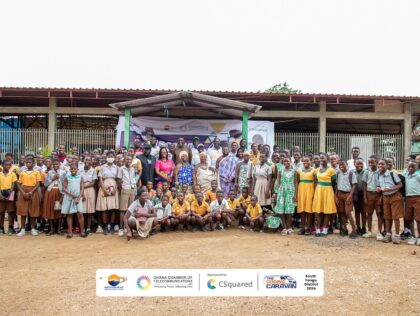Technology As an Enabler for the Creative Arts Industry
Concept Note
Globally, UNESCO reports that the Cultural and Creative sectors account for about 3.1 percent of the world’s gross domestic product (GDP) and about 6.2 percent of all employment. This makes the sector one of the most strategic when it comes to investments for economic development. In most advanced countries, the sector is well-developed and contributes significantly to economic growth. For example, in the United States, the Creative Arts industry, according to the Bureau of Economic Analysis and National Endowment for the Arts, employs about 4.9 million persons whose combined annual earnings amount to $370 billion. This translates to about 4.2 percent of the country’s GDP, representing $763.3 billion. In the United Kingdom, the sector in 2015 contributed about £85 billion, which represents 5 percent of the GDP.
Creative Arts are very broad and traditionally span across areas such as arts and crafts, jewelry making, architecture, books, poetry, plays, music, dance, fashion design, etc. With modern technology, the sector has expanded to include photography, videography, radio, television, and more recently software development (gaming, animation, cartooning, websites, social media, online streaming, artificial intelligence, etc.).
Increasingly, the application of technology in the Creative Arts sector is gaining currency in socio-academic discourses. This particularly follows the consequential impact of COVID-19 on the sector. Some analysts have bemoaned the lack of support for the sector, especially in developing countries which, paradoxically, are home to young energetic populations. These analysts believe that in the post-COVID-19 era, it would be important for countries to pay special attention to how technology can be used as an enabler for Creative Arts.
In Ghana, the Creative Arts Industry is quite vibrant. For example, there is currently a Ministry of Tourism, Arts, and Culture that oversees the development of the creative arts sector. Beyond the ministry, there is also a Creative Arts Council (CAC) which is charged with the responsibility of promoting a creative arts industry that is thriving and dynamic from the area of “music, to fashion, theatre, architecture and the visual arts and design. “The council believes Ghana is internationally “a strong force to be reckoned with when it comes to the creative arts.”
Last December (2022) Ghana virtually became the epicenter of international music concerts in line with the country’s strategy of using the arts to bring in tourists, especially from the Diaspora. For example, the Afrochella Concert drew in huge crowds from the Diaspora and other African countries. The high patronage of the concerts, some argue, shows that indeed Ghana has the potential to evolve a profitable creative arts industry.
However, it is important to stress that the creative arts go beyond entertainment. The push in Ghana, presently, for technical and vocational education is linked to the need for young persons in school to be given the opportunity to express themselves in different ways rather than the excessive emphasis on grammarian education. More often than not, creative people dislike it when they are boxed into straitjacket systems. They like to be free to create and innovate.
And this is where technology comes in. In today’s world, there are several technological tools for creativity. The emergence of social media has also given young people a myriad of outlets to share their personal creative content with the rest of the world. For example, a lot of young people are using YouTube, Facebook, Twitter, Instagram, TikTok, etc. to share content they create using free digital tools.
Against this backdrop, institutions like the Institute of ICT Professionals (IIPGH) have been interested in bringing together professionals to dialogue and explore ways and means by which technology can support creative people. It is for this reason that the Institute is dedicating its quarterly INDAC-TED (Industry-Academia Tech Dialogue), the 7th edition since its inception, to discuss the theme, “Technology as an enabler for the Creative Arts Industry”.

The event will take place at the Accra Technical University on Thursday, February 16, 2023, as part of the outlined pre-events of the Tech Job Fair 2023, and speakers will include experts who are well-versed in the subject. There will be a panel discussion involving seasoned professionals from both academia and industry. As well, there will be an open forum where the participants could engage in a Q&A session.
Partners/Organizers
DigiCAP.gh is an Information and Communication Technology (ICT) project by the Special Initiative on Training and Job Creation, funded by the German Federal Ministry for Economic Cooperation and Development (BMZ) through sequa gGmbH, and implemented by AFOS, the German Foundation for Entrepreneurial Development Cooperation. As part of the project’s objectives, ICT-related capacity-building programs are organized in partnership with the Institute of ICT Professionals Ghana (IIPGH) and its partners from the ICT industry in Ghana and beyond. These programs target employment opportunities for young people and how to unlock sustainable jobs in relevant emerging technologies knowledge areas. Industry-Academia Tech Dialogue (INDAC-TED), a quarterly symposium, has become one platform to discuss issues of skills development and employment. To expand the conversation on job opportunities, the Tech Job Fair (TJF2022) was organized, which highlighted Remote ICT Service Delivery as another area of employment for the youth.
Author: Ernest Ortsin, Project Management Consultant, Tech Job Fair 2023
For comments, contact info@iipgh.org





